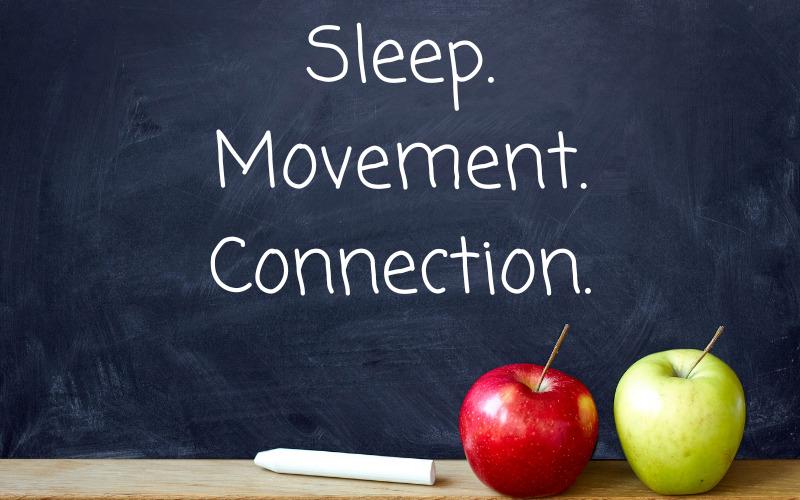The transition back to school is here. My own kids are excited, mostly to see their friends again and to not have to deal with their parents homeschooling them anymore. A lot of the teens I work with tell me that they’re looking forward to seeing friends and teachers and having a routine. Just as many are anticipating a lot of anxiety or stress and would prefer not to think about it.
As a parent, how are you approaching this? Some parents I talk with are eager to get their kids out of the house and into some routine and structure. Others are anxious about the stress and arguments that often come with more expectations and busy schedules.
Is your kiddo over-scheduled or under-scheduled?
If you have a busy, highly scheduled kid, you have a unique set of challenges. How do you prioritize? How do you fit in down time? What about sleep and quality family time?
If you have an under-involved kid who’s mostly at home when they’re not at school, you have a different set of challenges. How will you get them out of the house to exercise and to get involved in prosocial activities?
Wherever your kid is on this spectrum, there’s a good chance that they’re dealing with some mental health challenges as well. A 2019 Pew study found that 70 percent of teens across all demographics report anxiety and depression as a “major problem” among their peers. If what I’m seeing in my practice is any indication, these numbers are accurate. The pandemic has certainly not helped.
We’ve all witnessed star athletes like Naomi Osaka, Simone Biles, and Kevin Love take breaks from the sport they loved and excelled at. They made an important and I imagine, scary, decision to prioritize their wellbeing over fame, money and the approval of others. It seems to me like these athletes went through a reckoning of their values and starting to figure out what’s truly important to them. It’s courageous work.
There’s a unique opportunity between now and the beginning of school, to mirror this process with your family and child. By getting clear about what you value as a family and what your teen values as an individual, the process of clarifying expectations and rules will become much easier.
Below are some examples of values you might prioritize as a family. These are the “why” that should precede any rules or expectations.
- Getting enough sleep because it’s foundational to mental health.
- Downtime because it helps recharge the brain and reduce stress.
- Quality family time because it promotes positive relationships and connection.
- Play because our relationships and mind need playfulness to grow.
- Volunteering/helping the community because it’s even more important than self-care for promoting happiness and wellbeing overall.
- Physical activity/exercise are important for obvious reasons.
- Talking openly about mental health and getting support as needed because no one should suffer silently in shame and going to therapy is an act of strength and courage.
- Making time to talk with each other and have conversations often builds resilience and connection when everyone’s feeling heard and respectfully speaking their truth.
- Treating all others with respect and dignity because disagreements and frustration will happen for sure.
- Accountability and personal responsibility because everyone in the family is going to make mistakes.
I’m sure you can think of others. Notice what’s not on this list: getting good grades, “trying your best,” and balanced screen time.
Getting good grades is a performance measure, like winning a gold medal or Grand Slam title. We don’t want our kids to derive their self-worth from grades or any other external achievement because the end result almost always involves anxiety and depression.
“Trying your best” is too vague. Our best on any given day looks different and is very difficult to identify, especially with teens. More often than not, they are trying; they’re just not getting good results because they’re lacking certain skills. They’re also tired of us reminding them that we just want them to try their best.
Addressing devices is a smoother process when clear values are in place. It’s much easier to have agreements on limits when the agreements are driven by values and not arbitrary rules handed down by a parent. For example, rules like having devices out of rooms at night or away during meals or family activities makes sense if they’re driven by the prioritized values of quality sleep and family time. Having a conversation about devices and agreements is easier when the values of mutual respect, listening, and learning together are at the forefront.
So, as you transition back to school, keep in mind that your teen wants to do well but also that our kids are all going to be facing different challenges. Some of them will be facing a lot of social anxiety, others will struggle to keep up with the work load, some will be going a hundred miles an hour and cumulating sleep deprivation while gradually eroding their emotional well-being. Some of us have kids who are wishing the pandemic was still raging so that they could continue to stay home in their pajamas all day. To top it all off, with this Delta variant, there’s so much we just don’t know about the immediate future.
By planning ahead and focusing on your values as a family, responding to these challenges will be much easier and smoother. We have a unique window of opportunity heading into the fall to grow and to start to create new norms as individuals and as a family. We don’t have to be perfect; but little changes we make now can make a big difference for our kids and for ourselves over time.







